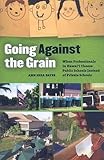Going Against the Grain : When Professionals in Hawaii Choose Public Schools Instead of Private Schools / Ann S. Bayer.
Material type: TextPublisher: Honolulu : University of Hawaii Press, [2009]Copyright date: ©2009Description: 1 online resource (352 p.)Content type:
TextPublisher: Honolulu : University of Hawaii Press, [2009]Copyright date: ©2009Description: 1 online resource (352 p.)Content type: - 9780824833398
- 9780824862688
- 371.010969 22
- online - DeGruyter
- Issued also in print.
| Item type | Current library | Call number | URL | Status | Notes | Barcode | |
|---|---|---|---|---|---|---|---|
 eBook
eBook
|
Biblioteca "Angelicum" Pont. Univ. S.Tommaso d'Aquino Nuvola online | online - DeGruyter (Browse shelf(Opens below)) | Online access | Not for loan (Accesso limitato) | Accesso per gli utenti autorizzati / Access for authorized users | (dgr)9780824862688 |
Frontmatter -- Contents -- Preface -- Acknowledgments -- Note on Hawaiian Spelling -- Notes on Research Procedures -- 1 Introduction -- 2 Professionals Choosing Public Schools -- 3 Children's Public School Experiences -- 4 "Going Against the Grain" -- 5 The "Incessant Conversation" -- 6 Connecting the Dots: The Master Narrative -- 7 What Can We Do Better? Making Public School Changes -- 8 Why Should We Care? Public Schools and Healthy Communities -- References -- Index -- About the Author
restricted access online access with authorization star
http://purl.org/coar/access_right/c_16ec
This book is about passion, advocacy, and the willingness of parents to "go against the grain." It's about Hawai'i professionals choosing public education for their children in a state that adheres to a commonly held belief that "public schools are failing and private schools are succeeding." University of Hawai'i education professor Ann Bayer interviewed fifty-one parents, including five who chose private schools. Physicians, professors, attorneys, military officers, teachers, legislators, business executives and entrepreneurs, bankers, and administrators of both genders and from a wide range of ethnic backgrounds were among those interviewed.Bayer begins by asking parents why they chose to send their children to public schools. She also asks them to describe the reaction of families, friends, and colleagues to their decision and their children's school experiences-both positive and negative. From these conversations the concept of what constitutes a "good public school" emerges as well as the opportunities provided by such schools. Several parents remark that their children have gone on to attend the same colleges and universities as private school graduates. Other chapters examine more closely the prevalent belief in the superiority of Hawai'i's private schools and its impact on students, parents, and teachers. Bayer argues that it is important to understand this belief system and how both newcomers and longtime residents are exposed to it given its influence on parental decisions about schooling. Finally, she returns to interviews with parents for suggestions on how to improve public education in Hawai'i and to address the question "Why should we care about the public school system?" Responses spark frank discussions on the broader implications for the civic and economic health of a community fragmented by two-tiered schooling.Candid and insightful, Going Against the Grain provides a much-needed look at education in Hawai'i. It will be essential reading for parents, teachers, administrators, legislators, policy makers, and others interested in promoting and supporting public education and understanding its role in a democracy.
Issued also in print.
Mode of access: Internet via World Wide Web.
In English.
Description based on online resource; title from PDF title page (publisher's Web site, viewed 02. Mrz 2022)


